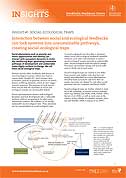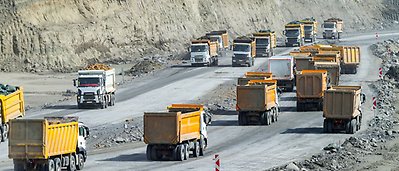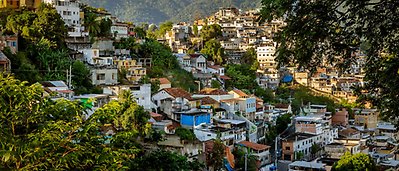Insight #5 Social-ecological traps

Interaction between social and ecological feedbacks can lock systems into unsustainable pathways, creating social-ecological traps.
Social phenomena such as poverty, economic opportunities and identity can interact with ecosystem dynamics in mutually reinforcing ways, generating vulnerable pathways of development and undesirable states highly resilient to change. We call them social-ecological traps.
A social-ecological trap describes a situation where social and ecological feedbacks mutually reinforce each other and maintain or push a social-ecological system towards an undesirable state. Social-ecological traps are hard to escape.Piecemeal, incremental change will not be sufficient to break out of such traps.
Social-ecological traps are related to but differ from poverty and rigidity traps that have primarily been described as a social phenomenon detached from ecosystems and how their dynamics feed into, are shaped by and affect social processes (but see Carpenter and Brock 2008).
Key findings
1. Poverty can create social-ecological traps.
2. Social-ecological traps can be driven by economic opportunities and aggravated by masking effects.
3. Identifying key actor groups can be critical to understand social-ecological traps.
4. Lag-effects can reinforce social-ecological traps.
5. Ecosystem illiteracy and strong identity can push people into social-ecological traps.








